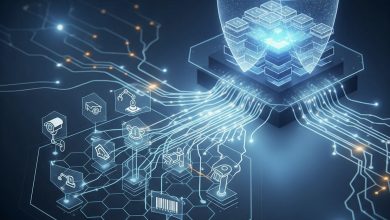The advent of artificial intelligence (AI) has been making many impossible things possible and there is no end to innovation in the field. Researchers have been scratching their heads and finding innovative techniques in which AI can be helpful for solving a few problems existing in the world. From converting imaginary handwriting into the text to detecting disinformation, AI is becoming influential and helpful. The Covid-19 pandemic has gripped the world and AI finds its application in solving different issues related to the pandemic. The demand for AI in various applications is expected to increase in the coming years. According to the report published by Allied Market Research, the global artificial intelligence market is expected to reach $169.41 billion in 2025. Following are some of the applications of AI that can help the world.
Imaginary handwriting to text:
With innovative applications of AI emerging across the world, decoding neural signals into text has become one of the innovative and useful applications. As per the study published by researchers of Stanford University, a brain-computer interface (BCI) device and AI software communicated neural signals of a man with full-body paralysis through text. With a rate of 18 words per minute, researchers were able to get a text message through two BCI chips on the left side of the brain and an AI program. The participant was asked to hand-write letters on imaginary paper. The software repeated each letter 10 times and then associated it with the effort of a participant to write a specific letter with neural signals.
The participant was asked to copy sentences that the software had never been encountered with. The participant was able to create 90 characters in five minutes. There was nearly one mistake for every 18 characters while writing sentences. The AI program was able to achieve an accuracy of 99% with the help of autocorrect. The BCI technology utilized in the experiment has not been approved yet; however, the university filed for the intellectual property patent. The findings will be helpful to people who lost the ability to use upper limbs or speak abilities due to spinal-cord injuries, strokes, or others.
AI to fight against Covid-19 pandemic:
As the field of AI progresses and new applications emerge, AI can become a boon during the fight against the Covid-19 pandemic. With the help of a vast amount of data regarding infection rates and death rates, AI can be helpful for building a better healthcare system. Aldo Faisal, the Professor of AI and Neuroscience at the Departments of Computing and Bioengineering at Imperial College London, highlighted that AI can be used to determine whether the health conditions of Covid-19 patients from intensive care units can worsen or not while turned on the stomachs. The researcher and his team were able to predict whether the condition will worsen or not by tracking trajectories of patients on daily basis. Then they deployed an AI algorithm for predicting the outcome.
AI to prevent the spread of disinformation:
Disinformation through social media has the power to change election outcomes, consolidate conspiracy theories, invoke chaos, and influence people in a negative way. To counter these disinformation campaigns and identify individuals or groups who spread such disinformation, MIT Lincoln Laboratory’s Artificial Intelligence Software Architectures and Algorithms Group launched the Reconnaissance of Influence Operations (RIO) program. Before 30 days of the elections in France in 2017, the team collected the real-time data from social media and analyzed them for disinformation.
Through the ROI system, the team was able to identify disinformation with 96% accuracy from the data of 28 million Twitter posts from one million accounts. Multiple analytics techniques were deployed for producing an extensive view of locations and ways in which disinformation was spread.




